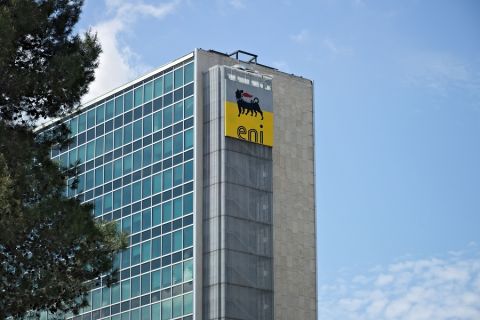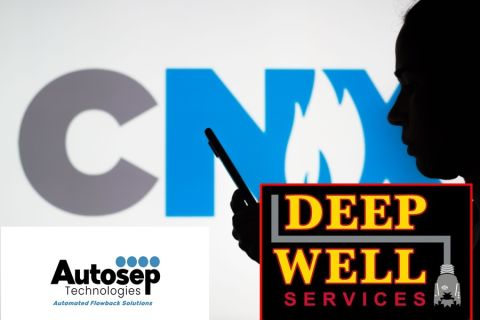Jordan Blum, editorial director, Hart Energy: We are here at CERAWeek by S&P Global in Houston. I'm joined by Greg Ebel, the president and CEO of Enbridge. Enbridge is the largest midstream infrastructure player in North America. You're expanding rapidly now in the utility space. You were involved there before, but now with big acquisitions from Dominion Energy and you just closed on East Ohio Gas Co. Can I get you to just discuss that strategy?
Greg Ebel, president and CEO, Enbridge: We're big believers in all of the above approach to energy. As you know, we've been in the oil business since 1949. We've actually been in the gas distribution business, maybe not all under the same ownership for over 100 years. So this really just extends that value chain because one thing we know is that natural gas has become a critical component, not only from a sustainability perspective, but from an affordability perspective. Ohio is a great location for us because we have oil pipelines going in there, we have gas pipelines that have already been going through the states since the 1950s. We provide some of the gas from there to our other distribution companies. So it really is interconnected. And we also have renewables in that location as well. If you think about the energy trilemma, you think about transition, the distribution assets really fit into all that from an affordability perspective, sustainability perspective and security of supply, which will be critical. That's the first out of three that we and the other two will come in a little bit later in the year. And at that point in time, we will be the largest natural gas distribution company in North America by volume.
JB: Very good. I guess the timing is pretty good since there's a lot of talk right now about North America being short on electric power and power grid woes in the foreseeable future. I guess you see this as a big growth area.
GE: We have always had the belief that yes, renewables, we've been in that business for 20 years, but without backup power or base power coming from natural gas, these lights that we're using today for the interview won't be as bright, I can assure you of that, and they may be a little bit intermittent. And you think about if you take that to industrial complexes or hospitals, there's no doubt that natural gas generation is going to be critical, not just here in North America, but around the world. And let's not forget that at least in the United States, most of the emission reductions that we've seen in the last 20 years have been as a result of a move from a coal- fired generation to natural gas. There's still some coal-fired generation in the country. You're going to have gas, as gas continues to grow and you're going to have renewables as well. And all that needs to work together if we're going to again allow for affordability and security and industrial growth. So I think it's just part of the overall solution that people seem to be realizing. There's nothing sustainable about it being too expensive for the average person in their home. And natural gas creates that nice foundation fuel so that they can have affordability as well as feeling good about sustainability issues.
JB: Great. Switching a bit to the liquid side with Enbridge's Mainline system, that's the main carrier of crude oil from Canada to the U.S. You just got some, is it fair to say finality on tolling agreement after several delays? How big of a deal and maybe ease of burden is that?
GE: First of all, the oil business continues to grow. I mean, people often forget it's about half of our business and we continue to grow it. And I think this agreement is a good example where now we've got an agreement where we're aligned with our customers that when they ship more of their product to markets and their customers, we actually do better. And so it took a while to put that together. There's a lot of different customers, a lot of different constituencies, but we have the Canadian government regulatory approval on that front. And that's really allowing us, again, to have good alignment with our customers and continue to find ways to grow together. You've seen our Mainline, which is where this agreement was settled on, actually hit record volumes and I would expect that to continue. Why? Production in the Western Canadian Sedimentary Basin continues to grow, despite what you might hear in some places, in fact is growing stronger than what people might expect, and it's coming down here to the United States, to the industrial hard line and Pad 2. And then again, you also see exports in the United States. So that energy interconnections is needed, that means we needed to come up with a nice settlement with customers and make sure we're providing them with service, but also continuing to grow the pipeline for our shareholders as well.
JB: Very good. When it comes to pipeline growth, most of the industry is focusing on natural gas NGLs, but there is still need for crude oil growth too. So you mentioned the Flanagan South on the Mainline system is growing Gray Oak Pipeline from the Permian to Corpus Christi. Can I get you to just elaborate on the strategy there?
GE: Sure. So Jordan, we've got two pieces. I mean Flanagan's being served and the liquids will come out of Western Canada, then feed into the Pad 2, and then we'll pick it up on Flanagan and take it further south. So that's a nice little expansion that we've got that I expect will be fully subscribed. And then Gray Oak as well just launched, that will be fully subscribed. That's doing a little something different, that's pulling oil from the Permian, which continues to be one of the most prolific cost-effective areas. So we have the benefit of serving Western Canada, a great cost-effective area with great reserves, and obviously the Permian as well. And then Gray Oak, let's not forget, serves our export facility at Corpus Christi, the largest oil export facility in the United States. So as Gray Oak expands, it also lets us expand the export terminal there.
And you might've seen in the last few weeks we announced the acquisition of more dock space there. And again, that's going to serve the global need for a rising demand for oil. And we've heard about peak oil for about 20 years. I think we still got a long way to go. There are millions, in fact, over a billion people on the planet that currently live on a dollar a day. One of the reasons for that is they don't have access to energy. So while we use a lot of energy in North America, there's no doubt about it, and we get the benefits of that, but oil is still needed as is gas which we've seen that on the LNG export side. So this is all interconnected, whether you're expanding Flanagan South, whether you're expanding Gray Oak, all of it ultimately gets to some type of export market in Canada, the United States or to other parts of the world.
JB: And the aim is to make the Ingleside export hub essentially net zero at some point too, right?
GE: That would be great too. We've got a big renewable business, as your viewers might be aware. Export facilities don't use a ton energy, so if we can use renewables, then we can actually make that carbon negative or neutral there, which would be great. And obviously if that oil is going to replace coal, that's a winner as well. So it's not always the way people think from a North American perspective, but from a global perspective. A lot of countries are moving from more carbon intensive fuels to oil, which we wouldn't think of that way all the time, we should. That's actually part of their energy transition.
JB: Thank you so much for joining us here at CERAWeek by S&P Global. To read and watch more, please visit online at hartenergy.com.
Recommended Reading
Ithaca Deal ‘Ticks All the Boxes,’ Eni’s CFO Says
2024-04-26 - Eni’s deal to acquire Ithaca Energy marks a “strategic move to significantly strengthen its presence” on the U.K. Continental Shelf and “ticks all of the boxes” for the Italian energy company.
Deep Well Services, CNX Launch JV AutoSep Technologies
2024-04-25 - AutoSep Technologies, a joint venture between Deep Well Services and CNX Resources, will provide automated conventional flowback operations to the oil and gas industry.
EQT Sees Clear Path to $5B in Potential Divestments
2024-04-24 - EQT Corp. executives said that an April deal with Equinor has been a catalyst for talks with potential buyers as the company looks to shed debt for its Equitrans Midstream acquisition.
Matador Hoards Dry Powder for Potential M&A, Adds Delaware Acreage
2024-04-24 - Delaware-focused E&P Matador Resources is growing oil production, expanding midstream capacity, keeping debt low and hunting for M&A opportunities.
Making Bank: Top 10 Oil and Gas Dealmakers in North America
2024-02-29 - MergerLinks ranks the key dealmakers behind the U.S. biggest M&A transactions of 2023.





